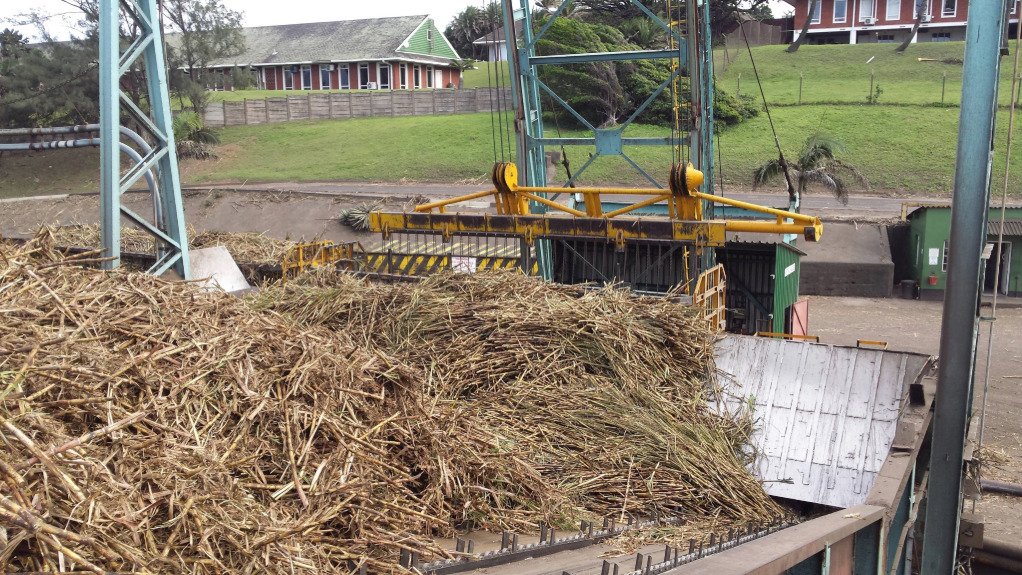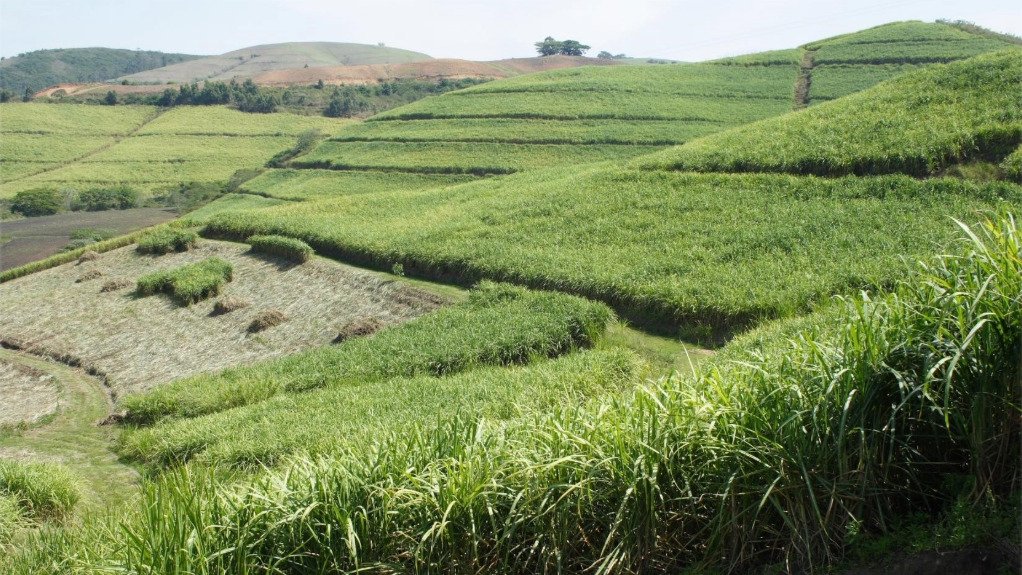Sugar cane industry must diversify products – SMRI



FUELING THE FUTURE Sugarcane and its byproducts offer significant potential as renewable feedstocks for sustainable product development
NECESSARY GROWTH It is essential to diversify beyond traditional sugarproducts and increase the value extracted from sugarcane
As the global sugarcane industry faces growing pressures, leading to factory closures, job losses and reduced cultivation, it is essential to diversify beyond traditional sugar products and increase the value extracted from sugarcane to ensure the industry’s survival and revitalisation, says nonprofit company Sugar Milling Research Institute (SMRI) CEO Dr Janice Dewar.
While attending G20 Initiative on Bioeconomy, held at the University of the Free State, in Bloemfontein, from 23 to 25 February, Dewar and SMRI strategic research group leader Dr Kitty Foxon delivered a presentation titled ‘Potential for bioeconomy development in Africa: Large-scale agroprocessing bio-refineries with sugarcane as the case study’.
The presentation aimed to raise the profile of sugarcane industries as potential drivers of new bio-based carbon value chains in the global economy, particularly for embedded carbon in chemicals and materials. The presentation also highlighted the international and national policy mechanisms needed to facilitate the disruptive change required for the rapid establishment of such value chains.
Sugarcane industries are under threat because revenue from traditional products has not increased at the same pace as the costs of production, particularly in countries where the size of such an industry exceeds local demand for sugar, and there is significant exposure to the export market, the institute elaborates.
“Theoretically, there are a massive number of products that can be derived from the components of sugarcane,” says Dewar.
With global economies shifting away from fossil-based feedstocks, demand for bio-based chemicals and materials is expected to rise, says Foxon. Studies by nonprofit organisation Nova Institute predict that, by 2050, up to 190-million tonnes of bio-based carbon a year – in addition to recycling and carbon capture – would be required to meet the anticipated demand for “green” carbon in chemicals and materials, to achieve net-zero ambitions of eliminating fossil-based sources.
Having been, identified as one of the highest-yielding crops for fermentable sugars, sugarcane could play a central role in this transition. It, and the byproducts from its processing to produce sugar, such as molasses and bagasse, offer significant potential as renewable feedstocks for sustainable product development.
Africa, with its abundant bio-resources, is well positioned to achieve these benefits on a large scale, but traditional investment models are inadequate for realising these opportunities.
Therefore, global policymakers must establish mechanisms to attribute market value to the direct and indirect benefits of large-scale agroprocessing biorefinery investments and facilitate financial flows to support these outcomes, says Foxon.
Supporting Sustainable Solutions
The SMRI, in collaboration with various partners and co-funding provided by the Department of Science, Technology and Innovation and the Technology Innovation Agency, has conducted extensive techno-economic research exploring the production of chemicals and materials derived from sugarcane feedstocks.
A key aspect of the value proposition for these proposed products is their sustainability, as they can be produced from a renewable feedstock using sustainable agricultural and processing systems. However, these products must meet stringent technical performance and sustainability criteria.
The research has focused on high-value products beyond sugar, primarily in the chemicals and materials sector. However, owing to the large-scale nature of such production, local markets would be unable to absorb the full output; therefore, a significant portion would need to be exported.
Dewar and Foxon explain that a feasible investment case for a new product facility requires technology to produce the chemical from a sugarcane feedstock, substantial investment finance and a market willing to buy the product at a suitable price.
However, in most cases, the production cost of new bio-based carbon products exceeds that of fossil-based alternatives, as agricultural feedstocks are more expensive to produce and process to the final product.
As a result, a bio-based or sustainability premium would be required to justify investment. Under conventional economic assessment models, this presents a high-risk investment scenario.
Foxon posits that, for bio-economy investments to succeed, traditional investment models must evolve. Conventional approaches focus solely on feedstock, capital and operational costs, with returns measured against a market-driven hurdle rate.
However, a more comprehensive framework is required. Investment returns should not only meet financial benchmarks but also align with sustainability criteria.
Rather than assessing returns purely on financial metrics, a new model must recognise, and value, the broader benefits of bio-based products, including decarbonisation, community development, environmental and biodiversity protection, as well as job creation, say Dewar and Foxon.
Sustainability outcomes must be quantified and stakeholders – including consumers, industry, government and global bio-economy players – must determine what they are willing to invest to achieve these benefits.
Therefore, policy must also evolve to support the bio-economy effectively, with policymakers identifying the benefits of bio-economy investments, quantifying their value, and determining funding sources. Robust systems and standards should be established to measure, report and value these benefits, ensuring transparency and integrity across the value chain, the SMRI adds.
Through policies, mechanisms must be established so that investment in sustainability benefits translates into capital injection or market support for bio-economy products. These could include concessionary loans, grant funding and loan financing, with interest rates linked to sustainability performance.
Additionally, market access must be enabled through demand forecasting for bio-based carbon and preferential access for certified products, as well as incentives and penalties that drive sustainable consumption.
Sugar Mills As Biorefineries
Sugarcane is typically processed into sugar and molasses, with bagasse used as fuel to generate steam and electricity, making them energy self-sufficient.
Many mills also export surplus power to local communities and, in some cases, the national grid. Sugar mills can also operate without water abstraction – sugar cane comprises 70% water – if the mill is designed to do so.
As facilities converting biomass into fuel, power and chemicals, sugar mills can be defined as biorefineries. In South Africa, some also produce ethanol, animal feed and other chemicals.
Located in rural areas, sugar mills drive local economies, functioning as economic hubs. Well-designed sugarcane biorefineries hold benefits for communities and the environment such as supporting food security, inclusive growth and biodiversity conservation.
Article Enquiry
Email Article
Save Article
Feedback
To advertise email advertising@creamermedia.co.za or click here
Announcements
What's On
Subscribe to improve your user experience...
Option 1 (equivalent of R125 a month):
Receive a weekly copy of Creamer Media's Engineering News & Mining Weekly magazine
(print copy for those in South Africa and e-magazine for those outside of South Africa)
Receive daily email newsletters
Access to full search results
Access archive of magazine back copies
Access to Projects in Progress
Access to ONE Research Report of your choice in PDF format
Option 2 (equivalent of R375 a month):
All benefits from Option 1
PLUS
Access to Creamer Media's Research Channel Africa for ALL Research Reports, in PDF format, on various industrial and mining sectors
including Electricity; Water; Energy Transition; Hydrogen; Roads, Rail and Ports; Coal; Gold; Platinum; Battery Metals; etc.
Already a subscriber?
Forgotten your password?
Receive weekly copy of Creamer Media's Engineering News & Mining Weekly magazine (print copy for those in South Africa and e-magazine for those outside of South Africa)
➕
Recieve daily email newsletters
➕
Access to full search results
➕
Access archive of magazine back copies
➕
Access to Projects in Progress
➕
Access to ONE Research Report of your choice in PDF format
RESEARCH CHANNEL AFRICA
R4500 (equivalent of R375 a month)
SUBSCRIBEAll benefits from Option 1
➕
Access to Creamer Media's Research Channel Africa for ALL Research Reports on various industrial and mining sectors, in PDF format, including on:
Electricity
➕
Water
➕
Energy Transition
➕
Hydrogen
➕
Roads, Rail and Ports
➕
Coal
➕
Gold
➕
Platinum
➕
Battery Metals
➕
etc.
Receive all benefits from Option 1 or Option 2 delivered to numerous people at your company
➕
Multiple User names and Passwords for simultaneous log-ins
➕
Intranet integration access to all in your organisation

















